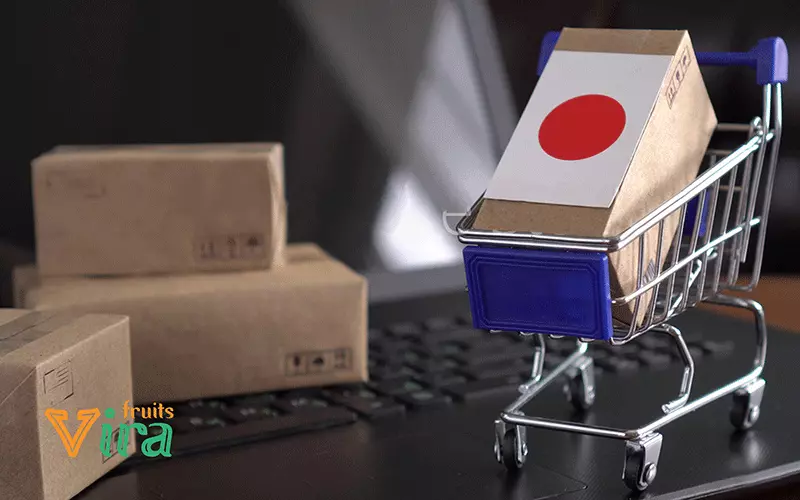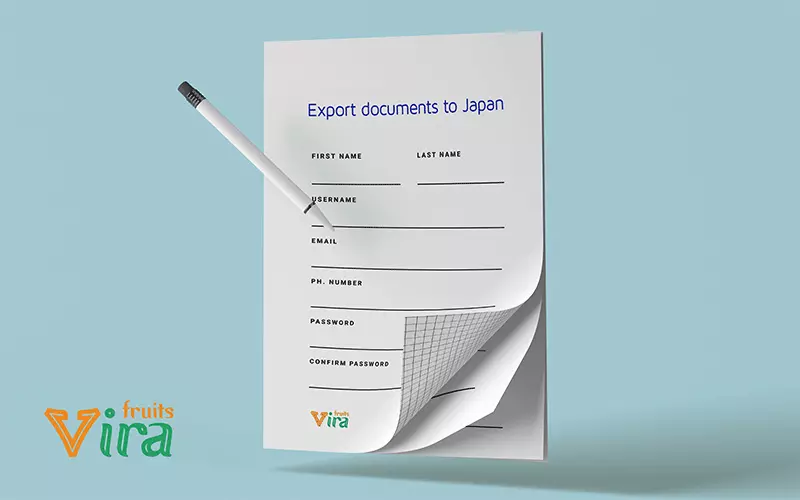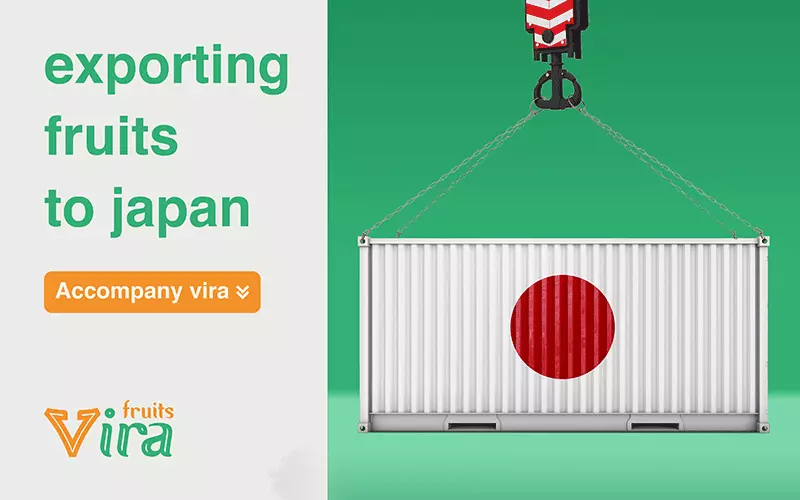Exporting Fruits to Japan is a complicated relationship. Japanese unique conditions such as their culture, aging population, uncertain economic history, and large middle class make the situation both complex and promising. With all the troubles Vira Fruits has the honor of having successful import-export experiences, such as exporting fruits Iranian red apple.
Challenges of exporting fruits to Japan
There are very few trade barriers to overcome for fruit exporters wishing to do business in Japan. For example:
- In Japan, there are particular language barriers, with the Japanese language as an example, as well as expectations for quality and customer service, along with a range of relationship issues between partners and distributors.
- There are numerous regulatory barriers affecting small businesses, including licensing requirements, restricted goods regulations, certifications, labeling requirements, etc.

How to export fruits to Japan in 3 steps?
1. Import notification
Importers are required to inform the Ministry of Health and Human Services upon importing foods and food additives for the purpose of marketing or business purposes under Article 27 of the Food Sanitation Law.
Under applicable regulations, imported products must carry an import notification before completing customs clearance procedures, so that the products can be sold before they are cleared by the customs service.
Interested parties may receive a Food Import Notification Form by mail or also electronic issuing from the responsible quarantine station you will be sending the form to. In addition to the Food Import Notification Form, certain food products need to include the pertinent sanitary and phytosanitary certificates.
Read about Fruit export company
2. Inspection
As soon as an inspector determines that a shipment is subject to inspection, an order will be issued that confirms compliance with Food Sanitation Law. During the inspection, the inspector will validate elements reported on the Notification Form, such as the country of export, the importer, the manufacturer, the place of manufacture, the ingredients, raw materials, additives employed and how they were made.
Additionally, the inspector will check if the imported food meets the standards for manufacturing governed by the Food and Drug Safety Law, whether the food uses approved additives or if it contains deadly poisons. Inspectors must also consider if a manufacturer or factory has had a history of sanitation problems.
3. Notification certificate
Suppose the MHLW quarantine station where the notification was initially submitted determines that the product is in compliance with the law. In that case, a notification certificate will be issued to the importer, and the importation will proceed as usual.
Importers who fail to follow quarantine requirements will be notified by the quarantine station, and they can take corrective action
There are also simplified import notification systems available for the purpose of simplifying and streamlining import procedures, such as the Prior Notification System, the Import Planning System, and official inspection reports from other inspection agencies in other countries.

Opportunities of exporting to Japan
With an aging population, Japan has the ideal situation for exporters in fields such as medical devices and equipment, pharmaceuticals, robotics, and healthcare facilities and infrastructure. Advances in manufacturing, fruit marketing, cybersecurity and e-commerce are among the fast-growing export markets to Japan.
rules, laws, regulations
It can be frustrating to figure out how to comply with Japanese export regulations at best. In the worst case, it can cause an exporter to stop the trade in Japan altogether. Here is a way to get around these problems:
- Cooperating with a partner who has experienced working with Japanese. It is essential that your freight forwarder and banker know how to work in the country.

What documents are required when exporting to Japan?
The ITA recommends working with a freight forwarder or customs specialist when importing to Japan, as well as having a local representative in Japan. Exporting products to Japan requires different documents, which include:
- Packing list
- Bill of lading
- AES filing
- Sales contract
- Commercial invoice
- Proforma invoice
- Insurance policy
- Customs declaration
- Import declaration form (customs form C-5020)
- Japanese import licenses for hazardous materials, animals, plants, perishables, and in some cases, articles of high value.
What are the tips for entering the Japanese market?
- Using the Japanese language when trading with them is a big step toward success. Marketers must communicate in Japanese to communicate with both Japanese consumers and Japanese business customers; many products must have labels that are written in Japanese by government regulation. Businesses in Japan will appreciate attempts to speak Japanese, even at a basic level.
- Respecting Japanese culture improves your relationship. Japanese society is complicated, structured, hierarchical, group-based, and devoted to age respect. It is important to build long-term business relationships upon high standards of quality in products and services, and it is expected that gifts be given in business situations.
More Information: 10 steps to become an import-export agent
